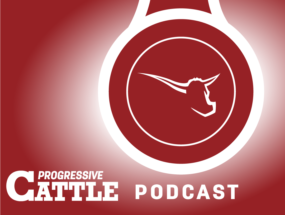The return of the USDA proposals sent to the White House (drafted in 2010) marks a renewed attempt by the Obama administration to target what it sees as “unfair practices and undue preferences” in GIPSA related to livestock and poultry production.
USDA confirmed their motives in a letter to National Cattlemen’s Beef Association CEO Kendall Frazier dated Oct. 13, explaining the motives for the "Farmer Fair Practices Rules," to “help balance the relationships between livestock producers, swine production contract growers and poultry growers and the packers, swine contractors and live poultry dealers with whom they interact.”
USDA Secretary Tom Vilsack wrote that three elements are being drawn up, with possible adjustments to the 2010 rules: a portion examining the scope of Sections 202(a) and (b) of the Packers and Stockyards Act; a proposed rule to address unfair practices and undue preferences in violation of the Packers and Stockyards Act; and a proposed rule addressing poultry grower ranking systems. USDA will provide a public comment period under the interim final rules for the proposal examining Section 202. The remaining two rules were officially proposed for White House approval.
Section 202 of the Packers and Stockyards Act prohibits packers from engaging in unfair and deceptive practices, giving undue preferences to producers or engaging in business that manipulates or controls prices.
Critics of the rule changes in 2010 said the proposals would amount to excessive government interference and overturn legal precedent that has historically backed meat packer contracts. Those same objections were raised again after Vilsack’s latest letter.
“The GIPSA rules, as they pertain to cattle producers, are extremely troubling to our industry at a time when we are already grappling with volatile futures markets and a fragile cash market,” said NCBA President Tracy Brunner in a statement. “Rather than working to help ensure producers have accurate price information in a productive way, like ensuring Mandatory Price Reporting is a critical government function, unaffected by future government shutdowns; USDA is expending time and resources to push forward outdated rules to regulate an industry that never requested their assistance.
“These rules were flatly rejected by cattle producers six years ago, and a strong bipartisan majority in Congress expressed their continual disapproval through a half-decade of defunding.”
Vilsack’s letter noted that USDA is also considering whether to exclude several portions of the 2010 rules, including: “applicability to livestock production and marketing contracts, including formula and forward contracts; the requirement that packers, swine contractors or live poultry dealers maintain written records that provide justification for differential pricing or any deviation from standard price or contract terms; the requirement that packers refrain from entering into exclusive agreements with livestock dealers; prohibiting packers from purchasing livestock from other packers; requirements that packers and live poultry dealers submit sample contracts to GIPSA for posting to the public.“
Brunner said those possible exclusions to the law don’t compensate for the possibility of creating more legal risk for packers. NCBA and the American Meat Institute said the rules would loosen the standard by which producers can sue a packer for unfair practices. Under the revised GIPSA interim rule, a producer would not need to provide proof of competitive injury to the entire industry to file a complaint against a packer.
"It is irresponsible for USDA to advance this stale, six-year-old rulemaking," said Barry Carpenter, president and CEO of AMI. "The interim final rule as described will open a floodgate of litigation, upend the established system for marketing cattle, pork and poultry in the U.S. and add costs at every step along the process, from producers to consumers."
The USDA’s movement earned praises from the National Farmers Union and from the U.S. Cattlemen’s Association (USCA), which applauded the ability to provide producers legal opportunity for a complaint against packers.
“These commonsense clarifications protect U.S. ranchers and cattle feeders from anti-competitive buying practices and help to advance true price discovery in a competitive marketplace,” said USCA President Kenny Graner. “USCA will submit official comments on the rules once they are made available.”
Since Congress still has a legislative rider defunding any changes to GIPSA, it’s uncertain how any approval from the White House will move the changes forward.
Sen. Pat Roberts, R-Kansas, chairman of the Senate Ag Committee, reiterated his opposition to the 2010 GIPSA rules, as well as any new version of the bill. “While the impact of these rules is not fully known, if they are in any way similar to the 2010 GIPSA proposal, I have serious concerns that the U.S. livestock, poultry and meat sectors will be tremendously burdened and [will] experience irreparable harm during already difficult economic times.” ![]()

-
David Cooper
- Managing Editor
- Progressive Cattleman
- Email David Cooper








